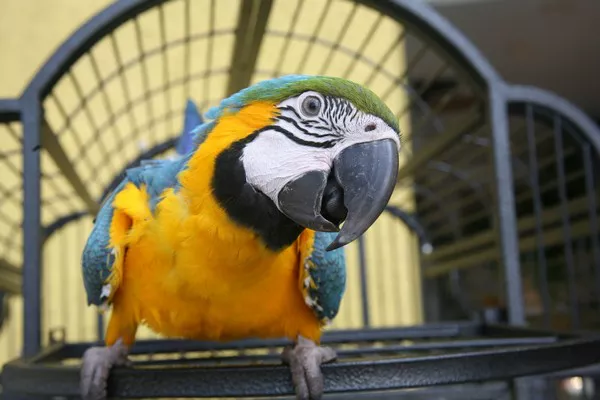Betta fish, also known as Siamese fighting fish, are among the most popular and visually stunning aquarium pets in the world. Their vibrant colors, flowing fins, and curious behavior make them a favorite choice for both beginner and experienced aquarists. To ensure a betta fish thrives, creating an ideal environment is crucial, and one essential component is providing the right kind of light. In this article, we’ll explore the types of light a betta fish needs, the role lighting plays in their health and behavior, and how to maintain a balanced lighting setup for your aquatic friend.
Why Is Lighting Important for Betta Fish?
Lighting serves several critical purposes in the life of a betta fish. These include:
Mimicking Natural Conditions
Betta fish originate from shallow waters in Southeast Asia, where they inhabit rice paddies, slow-moving streams, and shallow ponds. These natural habitats are well-lit during the day, with periods of shade provided by overhanging plants and other structures. Providing proper lighting in their aquarium helps replicate these conditions and ensures they feel at home.
Regulating Biological Rhythms
Like most animals, bettas rely on light to regulate their circadian rhythms. These rhythms govern essential biological processes, including sleep, feeding, and activity levels. A consistent day-night lighting schedule helps bettas stay active and healthy during the day and rest properly at night.
Enhancing Visual Appeal
Lighting enhances the vibrant colors of a betta fish, showcasing their natural beauty. This is not only aesthetically pleasing for the owner but also allows for easier observation of any changes in the fish’s physical condition, such as fading colors, which could indicate stress or illness.
Supporting Aquarium Plants
If your betta’s aquarium includes live plants, adequate lighting is essential for photosynthesis. Healthy plants not only beautify the tank but also improve water quality by absorbing nitrates and producing oxygen.
Behavioral Stimulation
Proper lighting encourages natural behaviors, such as exploring the tank, building bubble nests, or interacting with their environment. Dim or overly bright conditions can lead to stress, lethargy, or erratic behavior.
Types of Lighting Suitable for Betta Fish
Betta fish require moderate lighting that mimics natural daylight. Here are the main types of lighting to consider:
1. LED Lighting
LED lights are the most popular choice for betta tanks. They are energy-efficient, long-lasting, and available in a variety of color temperatures and intensities. Many LED fixtures allow users to adjust brightness levels, making it easier to find the perfect balance for your betta.
Advantages: Adjustable brightness, energy efficiency, and low heat output.
Recommended Setup: Use a soft, natural white light with an intensity of about 6,500 Kelvin, which mimics daylight.
2. Fluorescent Lighting
Fluorescent bulbs were once the standard for aquariums and remain a reliable option. They provide even lighting and are suitable for tanks with live plants. However, they produce more heat and consume more energy compared to LEDs.
Advantages: Even light distribution and compatibility with planted tanks.
Recommended Setup: Opt for full-spectrum bulbs labeled for freshwater aquariums.
3. Incandescent Lighting
Incandescent bulbs are generally not recommended for betta tanks. They produce excessive heat, which can lead to overheating the water. Furthermore, they are not energy-efficient and offer limited light spectrum options.
Disadvantages: High heat output, short lifespan, and inefficiency.
4. Natural Light
While natural sunlight might seem like a convenient option, it can be problematic for aquariums. Direct sunlight can lead to rapid algae growth, overheating, and fluctuations in light intensity.
Recommendation: Position the tank in a spot with indirect sunlight, but rely on artificial lighting for consistent and controllable conditions.
Characteristics of Ideal Betta Tank Lighting
When choosing lighting for a betta tank, consider the following factors:
1. Intensity
Betta fish do best under moderate light levels. Intense, bright lights can stress them, causing them to hide or become inactive. Conversely, insufficient lighting may lead to lethargy or disrupt their circadian rhythm.
Ideal Range: Look for a light source with an intensity similar to natural daylight, around 6,500 to 7,000 Kelvin.
2. Duration
Betta fish thrive with a consistent day-night cycle. Aim for about 8–12 hours of light per day to mimic natural daylight conditions. Use a timer to ensure consistency, as irregular lighting schedules can confuse their biological rhythms.
3. Color Spectrum
The color spectrum of the light affects both the appearance of your betta and the health of live plants in the tank. A full-spectrum light (also called daylight or 6,500K) brings out the best colors in bettas and supports photosynthesis for plants.
4. Heat Output
Betta fish prefer water temperatures between 76–82°F (24–28°C). Excess heat from lighting can raise the water temperature above this range, stressing the fish. LED lights are ideal because they produce minimal heat.
Setting Up Lighting for Your Betta Tank
1. Choose the Right Light Fixture
Select a fixture compatible with your aquarium size and design. Many tank kits come with built-in lighting, but you can upgrade if necessary. Look for fixtures with adjustable brightness or dimming features.
2. Place the Light Strategically
Position the light source above the tank to mimic the sun’s natural position. Avoid placing it too close to the water’s surface to prevent glare and heat transfer.
3. Use a Timer
An automated timer is a valuable tool for maintaining a consistent lighting schedule. Set the timer to provide light for 8–12 hours per day, with the rest of the time in darkness.
4. Monitor Tank Conditions
Regularly check the water temperature and observe your betta’s behavior. If the fish appears stressed or the tank shows excessive algae growth, adjust the lighting duration or intensity.
Common Mistakes in Betta Tank Lighting
Avoid these common pitfalls to ensure your betta’s lighting setup is optimal:
Using Lights That Are Too Bright
High-intensity lights can overwhelm bettas and cause them to hide. Stick to moderate light levels that mimic their natural environment.
Leaving the Light On for Too Long
Extended lighting periods disrupt circadian rhythms and encourage algae growth. Use a timer to maintain a balanced schedule.
Neglecting Shade
Bettas appreciate shaded areas where they can retreat and rest. Include plants, caves, or decorations to provide shaded spots in the tank.
Relying on Natural Sunlight
Direct sunlight can cause temperature fluctuations and algae blooms. Use artificial lighting to maintain control over the tank environment.
The Role of Light in Betta Fish Health
Proper lighting not only enhances the aesthetic appeal of a betta tank but also plays a direct role in your fish’s health and well-being:
Stress Reduction: Balanced lighting helps reduce stress, which in turn lowers the risk of diseases.
Immune Function: A stable day-night cycle supports a strong immune system, enabling bettas to resist infections.
Growth and Development: Adequate light levels encourage healthy growth, particularly for young bettas.
Mental Stimulation: Natural lighting patterns stimulate natural behaviors, keeping bettas active and engaged.
Conclusion
Providing the right kind of light is a key factor in ensuring your betta fish’s health, happiness, and vibrant appearance. Opt for moderate-intensity, full-spectrum lighting, and maintain a consistent day-night cycle to mimic their natural environment. By selecting the right lighting and observing your betta’s behavior, you can create a thriving aquatic habitat that showcases the beauty of this remarkable fish. With a little care and attention, your betta will live a healthy and colorful life, bringing joy to your home for years to come.
Related Topics:























